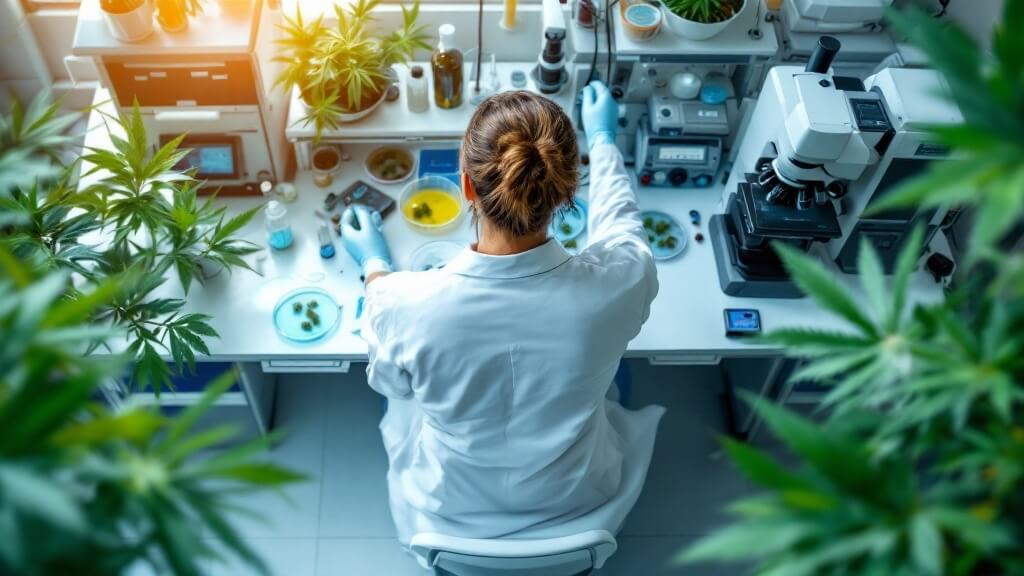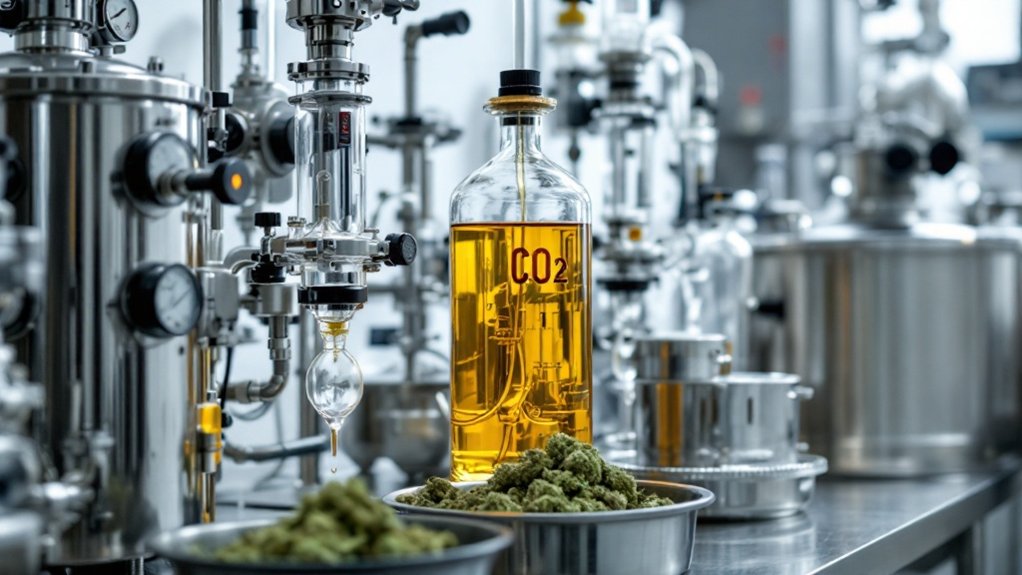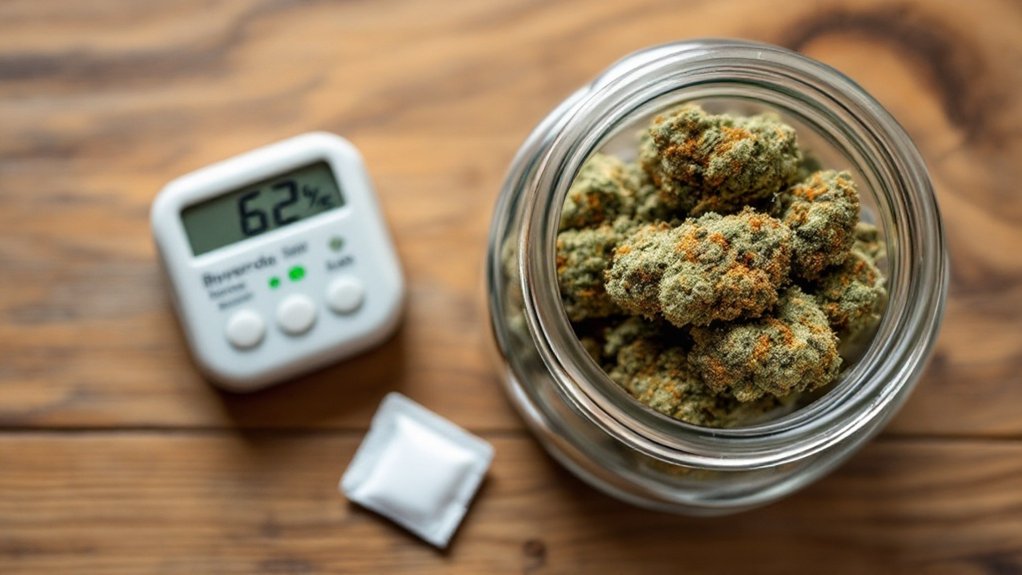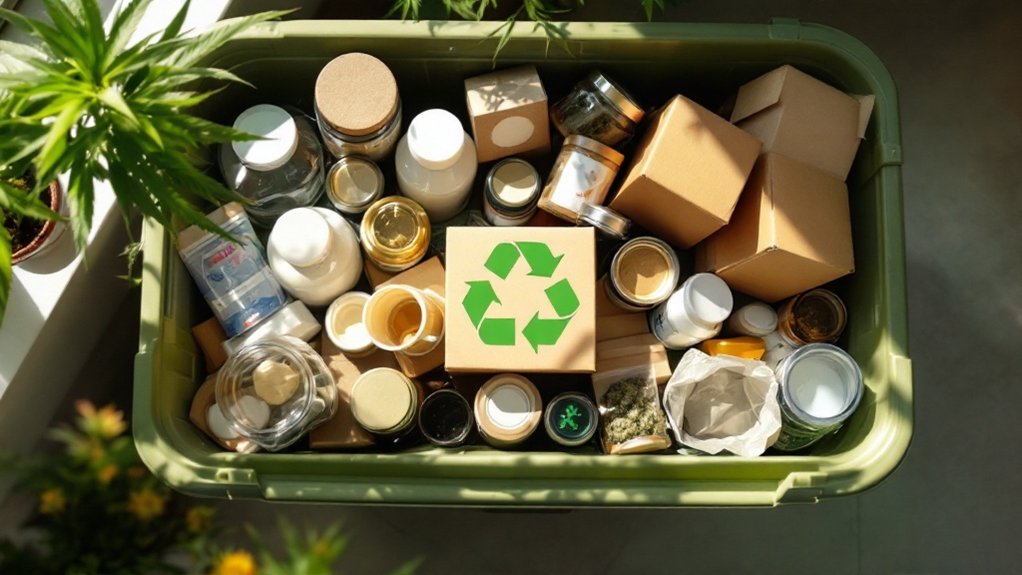Effective cannabis testing lab marketing requires balancing scientific credibility with strategic business development. Labs should showcase analytical capabilities through technical demonstrations of equipment like HPLC systems and GC-MS analyzers. Educational content about testing methodologies, active participation in industry events, and clear communication about regulatory compliance position labs as trusted partners. Building relationships with cultivators, processors, and retailers while highlighting third-party certifications transforms testing services from regulatory requirements into valuable strategic investments. The thorough approach below offers deeper insights into capturing market share in this growing industry.

Maneuvering the complex landscape of cannabis testing lab services requires a strategic marketing approach that balances scientific credibility with business development. Laboratory operators must leverage their technical expertise while communicating value to potential clients in the cannabis industry. Third-party verification through certifications like ISO/IEC 17025 demonstrates adherence to international testing standards and builds immediate credibility with producers seeking reliable analysis.
Success in cannabis testing marketing hinges on balancing scientific authority with client-focused business development strategies.
Cannabis testing laboratories can distinguish themselves by showcasing their analytical equipment capabilities. Featuring instruments such as high-performance liquid chromatography (HPLC) systems operating at controlled temperatures of 30-40°C (86-104°F), gas chromatography-mass spectrometry (GC-MS) for terpene analysis, and inductively coupled plasma mass spectrometry (ICP-MS) for heavy metal detection at parts-per-billion sensitivity demonstrates technical sophistication. These details signal to clients that the laboratory possesses the necessary tools for accurate cannabinoid potency testing, contaminant screening, and terpene profiling. This advanced equipment supports the market’s projected growth to reach US$3.2 Billion by 2030, creating significant opportunities for well-equipped laboratories. Additionally, implementing advanced quality control protocols ensures that the testing process meets safety standards and regulatory requirements.
Effective content marketing strategies involve developing educational resources explaining testing methodologies and regulatory requirements. Articles detailing the difference between THCA and THC measurement or explaining microbial testing procedures provide value to potential clients while optimizing for relevant search terms. Publishing white papers on topics such as the challenges of homogeneous sampling in cannabis-infused products positions the laboratory as a thought leader within the industry. Developing engaging programmatic advertising campaigns can help testing labs reach cannabis businesses on mainstream platforms while remaining compliant with platform regulations.
Networking remains essential in the cannabis sector where relationships drive business opportunities. Laboratory representatives should maintain visibility at industry conferences and participate in panel discussions about quality assurance and consumer safety. Collaborations with cultivators, processors, and retailers create referral networks while raising awareness of testing services.
Digital marketing requires careful navigation of advertising restrictions affecting cannabis businesses. Professional platforms like LinkedIn offer appropriate channels for sharing educational content and case studies without violating platform policies. Testimonials from established brands that have successfully passed regulatory scrutiny through the laboratory’s services provide social proof of reliability and accuracy.
Regulatory compliance expertise represents another valuable marketing differentiator. Laboratories that communicate current knowledge of state-specific testing requirements help clients avoid costly mistakes and product recalls. By positioning testing services as risk-management tools rather than regulatory hurdles, laboratories demonstrate their value as partners in product development and consumer safety. This approach transforms compliance testing from an obligatory expense into a strategic business investment.
Frequently Asked Questions
What Certifications Are Necessary for a Cannabis Testing Lab?
Cannabis testing laboratories require several essential certifications.
ISO/IEC 17025:2017 accreditation serves as the primary framework, demonstrating staff competency and quality of results. State-specific licensing is mandatory since cannabis remains regulated at the state level.
Methodology accreditation for detecting active compounds, contaminants, heavy metals, pesticides, residual solvents, and microbial testing is necessary.
Laboratories must also maintain compliance with evolving regulatory requirements that often incorporate food safety standards for edible products.
How Much Does Cannabis Lab Testing Equipment Cost?
Cannabis testing laboratory equipment costs vary widely based on several factors. New basic equipment starts around $5,000, while sophisticated analytical systems with gas chromatography and mass spectrometry capabilities can reach $250,000.
A complete lab setup may cost approximately $700,000. Used or refurbished options range from $500 to $150,000, offering significant savings.
Which Cannabis Compounds Should Our Lab Prioritize Testing?
Cannabis testing laboratories should prioritize compounds required for regulatory compliance first, specifically THC, CBD, heavy metals, pesticide residues, and microbial contaminants.
Secondary priorities include terpenes and minor cannabinoids like CBG and CBN, which offer product differentiation opportunities.
Residual solvents testing is essential for extract products, while mycotoxin screening prevents dangerous fungal byproducts from reaching consumers.
THCA and CBDA analysis provides valuable information about the plant material’s processing status and potential potency.
How Do State Regulations Affect Testing Lab Operations?
State regulations greatly impact cannabis testing laboratories by dictating required test panels, acceptable detection limits, and sampling protocols.
Labs must maintain state-specific accreditation, participate in mandated proficiency testing, and adjust their analytical methods to comply with each jurisdiction’s unique standards.
The variability across states often necessitates maintaining separate compliance systems, specialized training programs, and distinct reporting formats.
These regulatory differences drive equipment purchases, influence staffing decisions, and affect overall operational costs and market positioning.
What Turnaround Time Do Cannabis Businesses Expect for Test Results?
Cannabis businesses typically expect test results within 3-4 days for standard testing, though expectations vary based on operation size and market demands.
High-throughput facilities often accept 5-7 day timeframes, while smaller producers desire faster turnarounds.
Many businesses now seek expedited options, with 48-hour rush services becoming increasingly standard.
Microbiological testing requiring plating methods usually demands longer timeframes regardless of urgency.
Quick turnaround times considerably impact producers’ ability to package, label, and release products to market efficiently.









